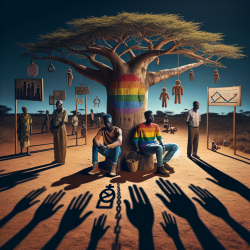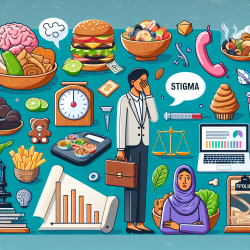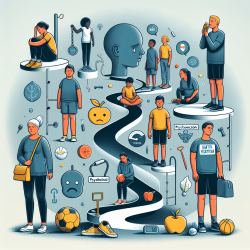Unveiling the Harsh Realities: Stigma and Violence Against Gay and Bisexual Men in Kenya
In the world of speech-language pathology, understanding the socio-cultural contexts that impact mental health is crucial. A recent study titled “You’ll Be Chased Away”: Sources, Experiences, and Effects of Violence and Stigma among Gay and Bisexual Men in Kenya provides a stark look into the challenges faced by this community. This research offers valuable insights for practitioners aiming to improve their skills and create better outcomes for children by understanding the broader societal issues that can affect mental health.
Key Findings from the Study
The study, conducted through in-depth interviews with 60 gay and bisexual men in Kenya, reveals pervasive stigma and violence at both interpersonal and institutional levels. These experiences are not only detrimental to mental and physical health but also highlight the urgent need for systemic change.
- Interpersonal Violence: Participants reported stigma and violence from family, friends, and romantic partners. Themes of gay-baiting violence, blackmail, and intimate partner violence were prevalent.
- Institutional Discrimination: Experiences of stigma within religious, employment, educational, and healthcare institutions were common. These institutions, which should ideally support health and well-being, often perpetuate discrimination and exclusion.
Implications for Practitioners
Understanding the socio-ecological model is essential for practitioners working with children from marginalized communities. The model helps in identifying how stigma at different levels affects mental health outcomes. Practitioners can use this understanding to advocate for more inclusive environments and support systems.
For speech-language pathologists, this means being aware of the cultural and societal pressures that might impact a child's communication and social skills. By fostering an environment of acceptance and understanding, practitioners can help mitigate some of the negative impacts of stigma.
Encouraging Further Research
This study highlights the need for more research into the mental health of marginalized communities, particularly in regions where stigma and violence are prevalent. Practitioners are encouraged to delve deeper into these issues to better support their clients and advocate for systemic change.
Conclusion
The findings from this study are a call to action for practitioners to use data-driven approaches to understand and address the broader societal issues affecting mental health. By doing so, we can create a more inclusive and supportive environment for all children, regardless of their background.
To read the original research paper, please follow this link: “You’ll Be Chased Away”: Sources, Experiences, and Effects of Violence and Stigma among Gay and Bisexual Men in Kenya.










